5 Key Nutritional Benefits of Shrimp vs Scallops for a Healthier Diet
Shrimp and scallops offer protein, omega-3s, vitamins, and minerals, making them healthy choices; shrimp excel in protein and antioxidants, while scallops shine in omega-3s and lower cholesterol.
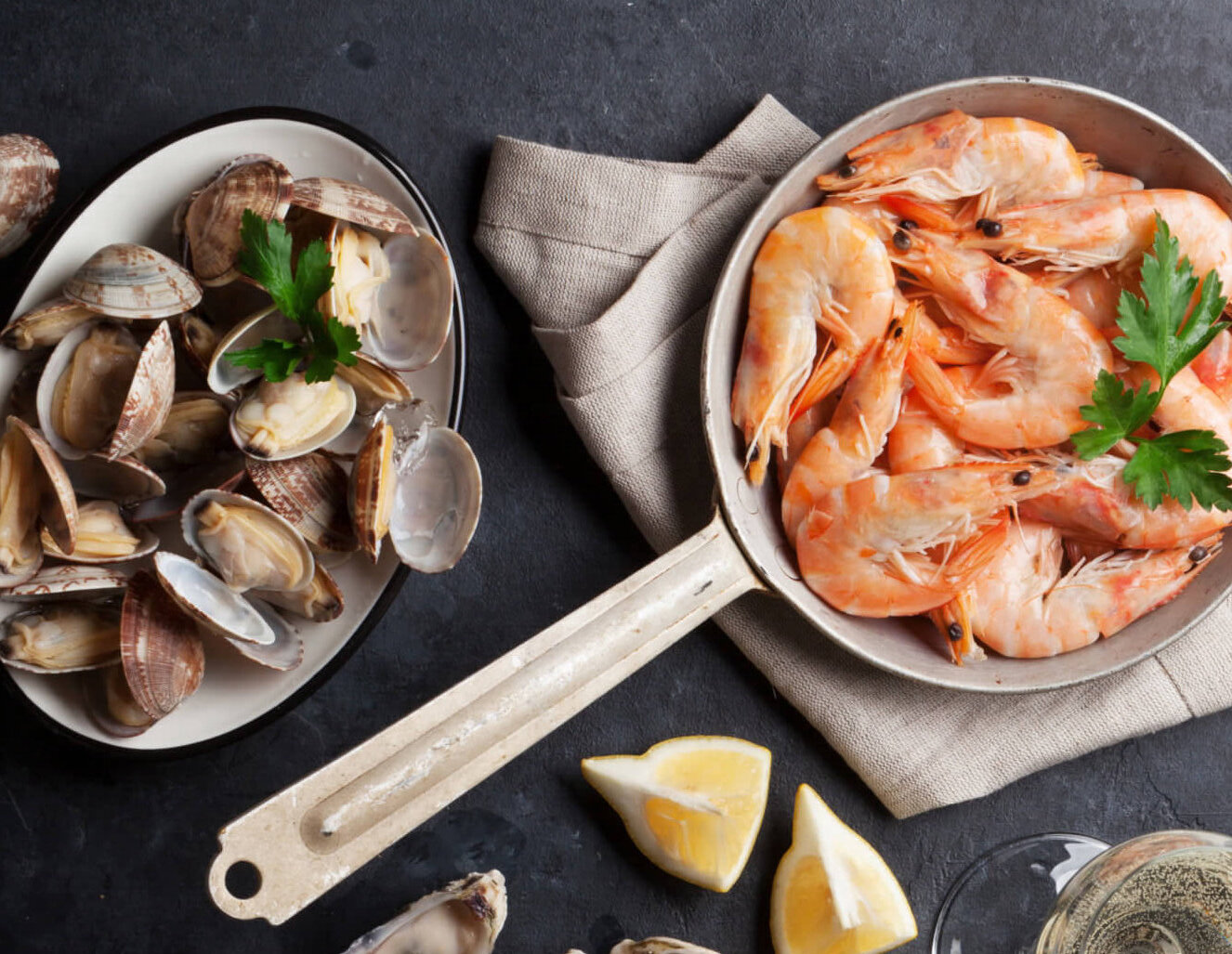
Shrimp and scallops are popular seafood, prized for flavor and health benefits. This piece examines their nutritional merits to guide your dietary choices. They’re globally consumed for their adaptability in recipes and health benefits, offering plenty of protein, minimal saturated fats, and essential omega-3 fatty acids, vitamins, and minerals, supporting a heart-healthy diet. We’ll delve into the distinct advantages of each to ascertain the better choice for your nutrition.
Disclosure: As an Amazon Associate, this site earns from qualifying purchases. Thank you!
Nutritional Profiles Compared
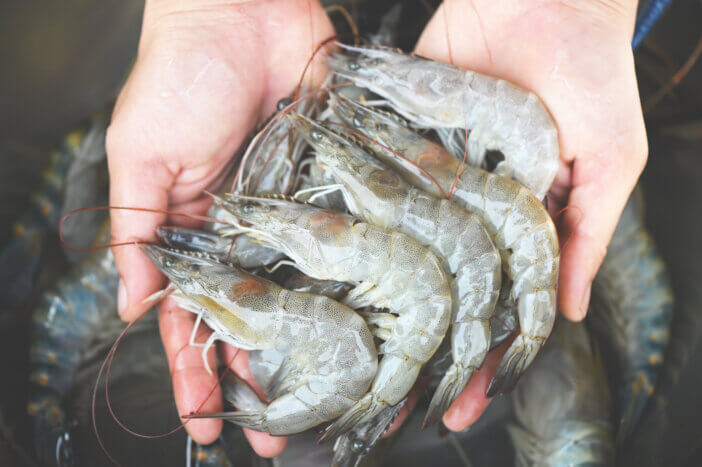
Shrimp and scallops have distinct nutritional profiles that cater to different dietary needs. Shrimp are crustaceans and come with a higher protein count per serving, whereas scallops, which are mollusks, offer a slightly different suite of nutrients. Both are low in calories and fat, making them an excellent choice for those looking to maintain or reduce weight.
When breaking down the nutritional content, shrimp are an excellent source of selenium and vitamin B12, while scallops provide a good dose of magnesium and potassium. Both are low in carbohydrates and contain no dietary fiber, which makes them suitable for low-carb diets. However, it’s worth noting that shrimp have a higher cholesterol content compared to scallops.
Shrimp: Health Benefits
Shrimp have some health benefits that make them a valuable addition to any diet. They are rich in antioxidants, including astaxanthin, which can help reduce inflammation and may protect against certain chronic diseases. The high levels of selenium in shrimp are also crucial for maintaining a healthy immune system and supporting thyroid function.
Furthermore, shrimp’s impressive vitamin B12 content is essential for nerve health and the production of DNA and red blood cells. This makes them particularly beneficial for individuals who may be at risk of B12 deficiency, such as vegetarians who occasionally consume seafood or the elderly.
Scallops: Wellness Wonders
Scallops are not to be overshadowed in the health department. They are an excellent source of protein and contain relatively low levels of fat and cholesterol, which can be advantageous for heart health. Scallops also contain a unique peptide called plasmalogens that some studies suggest may have a role in protecting against Alzheimer’s disease.
In addition to their potential neurological benefits, scallops are a good source of magnesium, which is vital for muscle and nerve function, and potassium, which helps regulate blood pressure. Their mineral-rich profile contributes to overall wellness and can be especially beneficial for individuals managing hypertension or requiring muscle recovery.
As Healthy Hubbs explains in the video –
Healthy Hubb
- Scallops are packed with omega-3 fatty acids, vitamin B12, antioxidants, vitamins, minerals, and muscle-building protein.
- They promote cardiovascular health by balancing cholesterol levels and protecting the heart.
- They help lower cholesterol levels by increasing good HDL cholesterol.
- Scallops support weight loss as they are a lean protein low in fat and cholesterol.
- They help regulate blood pressure and are a good option whether suffering from high or low blood pressure.
- Scallops can reduce muscle tension and cramps due to their high magnesium content.
- They improve the condition of blood by increasing oxygen, improving circulation, and lowering pressure.
- Scallops help prevent strokes through improving circulation and reducing blood clotting.
- Their high protein content helps build and repair muscles, especially after exercise.
- Scallops contain nutrients like zinc that help balance hormones and regulate the endocrine system.
Caloric Content Face-Off
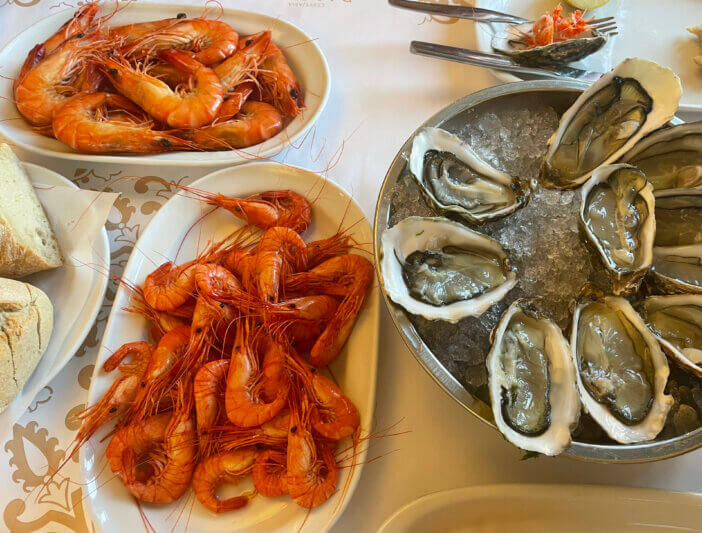
When comparing the caloric content of shrimp and scallops, both are considered low-calorie foods, which is beneficial for weight management. A 3-ounce serving of cooked shrimp contains roughly 84 calories, while the same serving size of scallops contains about 95 calories. The difference is minimal, indicating that both can be included in a calorie-controlled diet.
The slight difference in calories may be attributed to the varying compositions of shrimp and scallops, with scallops having a bit more carbohydrate content. However, the difference is so small that it is unlikely to impact one’s diet significantly unless consumed in large quantities.
Protein Power: Shrimp vs. Scallops
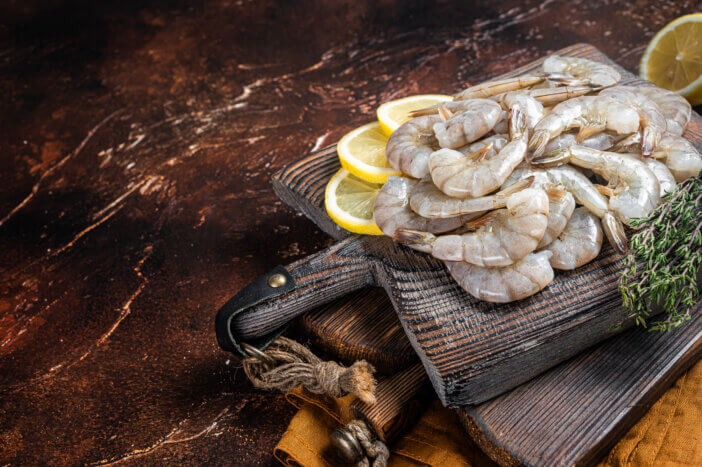
Protein is crucial for muscle repair, immune function, and overall health. Shrimp are a protein powerhouse, offering about 20 grams of protein per 3-ounce serving. Scallops are also a good source of protein, providing 17 grams per serving. While shrimp take the lead in this category, both provide high-quality protein that is easy to digest and beneficial for those looking to increase their intake.
For those engaged in regular physical activity or looking to build muscle, incorporating either shrimp or scallops into their diet can be a great way to ensure adequate protein intake without consuming excessive calories or fat.
Omega-3 Fatty Acids Showdown
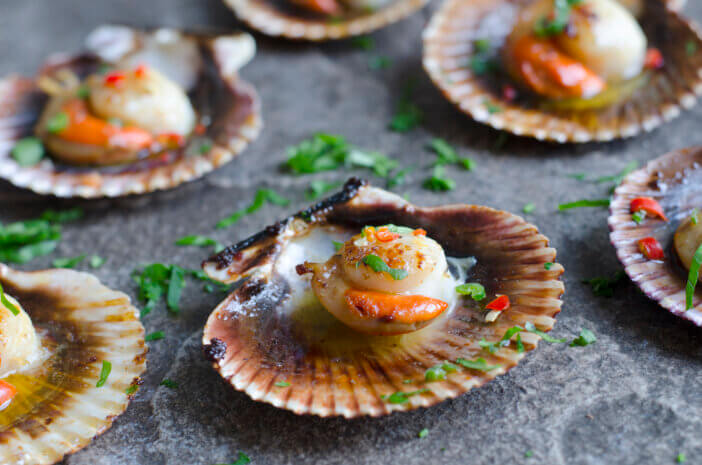
Omega-3 fatty acids are essential fats that the body cannot produce on its own, making it necessary to obtain them through diet. Both shrimp and scallops contain these heart-healthy fats, although in different amounts. Shrimp have a respectable omega-3 content, especially considering their low fat overall, but scallops have a higher concentration of these beneficial fats per serving.
The omega-3 fatty acids found in both shrimp and scallops are known for their anti-inflammatory properties and their role in heart health. Regular consumption of foods high in omega-3s is associated with a lower risk of heart disease and may support brain health.
Mineral Content Comparison
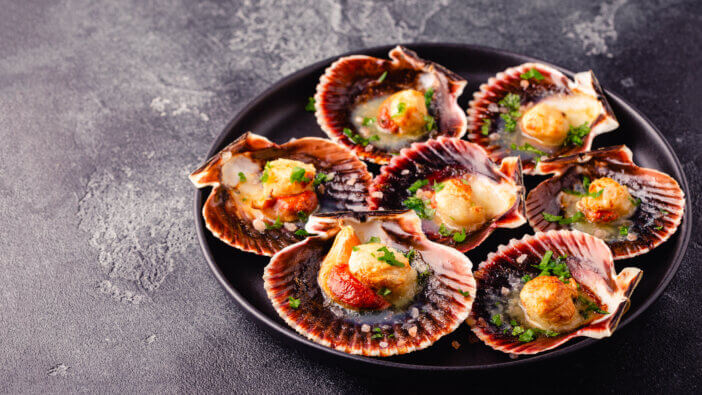
Minerals are essential for various bodily functions, and both shrimp and scallops offer a range of these important nutrients. Shrimp are particularly high in selenium, an antioxidant mineral that plays a key role in metabolism and thyroid function. Scallops provide a good dose of magnesium and potassium, which are important for muscle and nerve function and cardiovascular health.
While both seafood options are rich in different minerals, they complement each other well and can be part of a balanced diet that ensures a broad spectrum of nutrients. Including both in your diet could provide a more comprehensive mineral intake.
Dietary Considerations
When incorporating shrimp or scallops into your diet, there are some considerations to keep in mind. Shrimp have a higher cholesterol content, which was once thought to be a concern for heart health. However, recent studies suggest dietary cholesterol has a minimal impact on blood cholesterol levels for most people. Still, those with specific health conditions may need to monitor their intake.
On the other hand, scallops are generally lower in allergens and contaminants compared to shrimp. Scallops are also a safer bet for those with dietary restrictions related to iodine, as they contain less of this mineral than shrimp. Both shrimp and scallops should be consumed in moderation and sourced from reputable suppliers to minimize exposure to pollutants and heavy metals.
Making the Healthier Choice
Deciding whether shrimp or scallops are the healthier choice depends on individual health goals and dietary requirements. For those seeking lower cholesterol and higher omega-3 fatty acid intake, scallops might be the better option. However, if higher protein and antioxidant levels are a priority, shrimp could be the preferred choice.
Ultimately, both shrimp and scallops are nutritious seafood options that can contribute to a healthy diet. They each have their unique health benefits and can be part of a varied and balanced diet. The key is to enjoy them in moderation and to pay attention to how they’re prepared, as cooking methods can greatly influence their healthfulness.
In the shrimp versus scallops health showdown, it’s clear that both seafood options pack a nutritional punch with their own sets of benefits. Whether you choose shrimp for their protein and antioxidants or scallops for their omega-3 content and lower cholesterol, you can feel confident in adding these delicious sea treasures to your diet.






